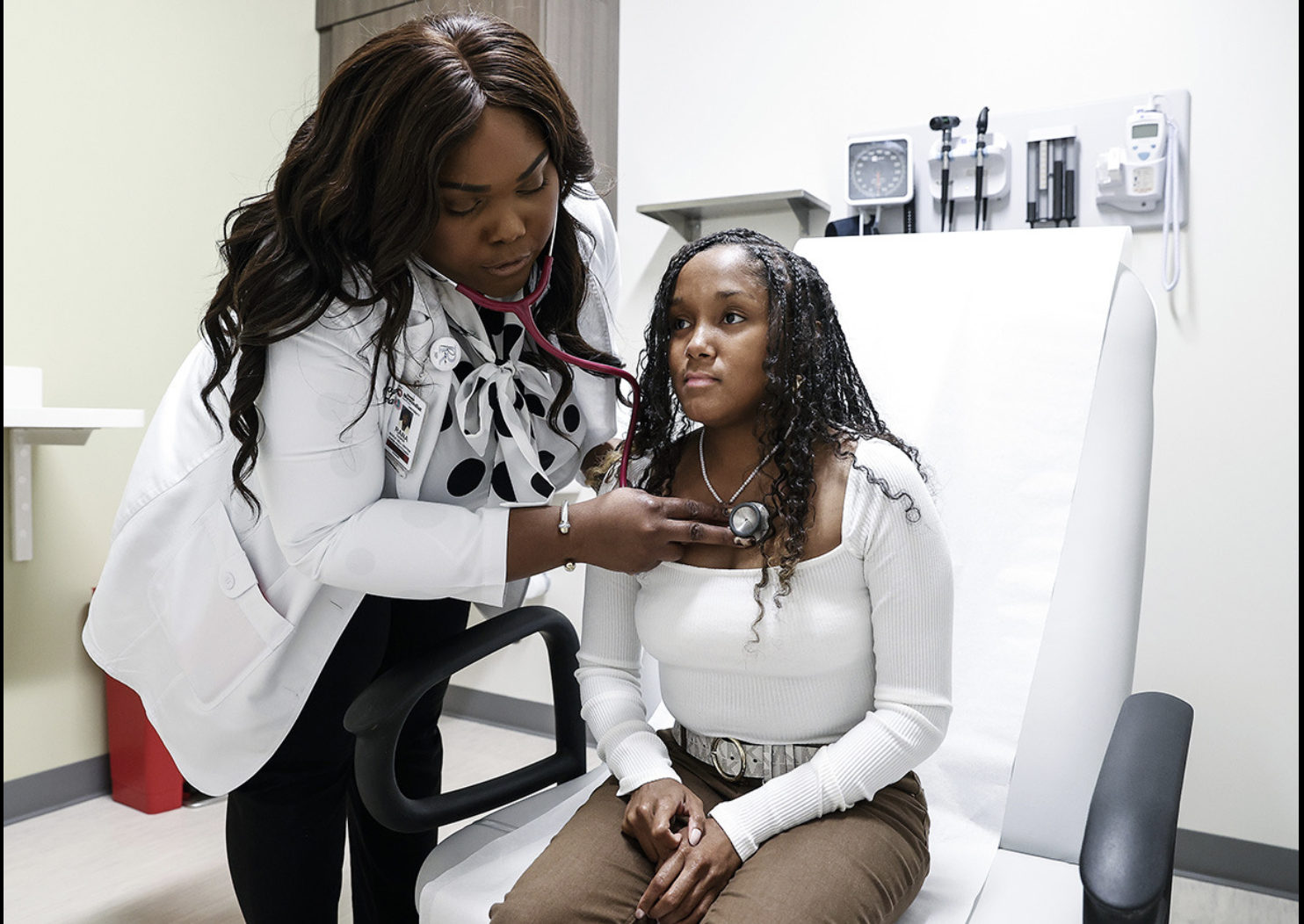For many Black sickle cell patients, care must reach deeper

The Daily Memphian, by Aisling Mäki March 5, 2024: In Memphis, Black patients with an inherited blood disorder carry trauma from the dismissal of their chronic pain and severity of symptoms.
“Sickle cell is a very aggressive, traumatizing and difficult disease to live with,” said April Ward-McGrory, 42, a lifelong resident of this city on the Mississippi River in southwest Tennessee.
She has nearly died several times from complications related to the disease. A double amputee, Ward-McGrory lost her legs to sepsis after falling into a coma.
“As I got older, my mental health just started to crumble, especially after I lost my legs,” she said. “With sickle cell, there is no remission. You get these short breaks in between crises.”
Sickle cell disease developed as a mechanism to protect against severe malaria; mutations occurred in the Middle East, India, the Mediterranean and Sub-Saharan Africa.
Memphis, now the largest Black-majority city in the U.S., is home to one of the nation’s largest populations of adults living with the disease.
Sickle cell disease causes red blood cells to become hard and sticky, in the shape of a crescent. The cells die early, causing a shortage of red blood cells.
When the sickle cells travel through small blood vessels, they clog blood flow, which can cause pain and potentially deadly problems such as infection, stroke and organ damage.
Complications are wide-ranging and include problems with vision, lungs, hearts, kidneys and bones. Most patients die from end-organ damage.
Treatments include medications such as hydroxyurea and blood transfusions. Bone marrow transplant is the only potential cure, but it comes with serious risks.
Drug advances and a better understanding of sickle cell disease have increased life expectancy, with patients now living into their 40s and 50s with consistent care.
But mortality stays consistently on the minds of patients like Ward-McGrory, whose sister died from sickle cell disease complications on Christmas Day in 2019.
“There’s this proximity to death and awareness that death can strike at any moment,” said Dr. Randolph Potts, a psychologist at Methodist Comprehensive Sickle Cell Center in Memphis.
He said almost all of his patients have a friend or family who died early and unexpectedly from a sickle cell-related condition.
“They can be young and otherwise doing well,” he said. “But when they go into the hospital for a sickle cell pain crisis, in the back of their minds, they’re worried this could be their last visit to a hospital.”
Read more from The Daily Memphian here.




